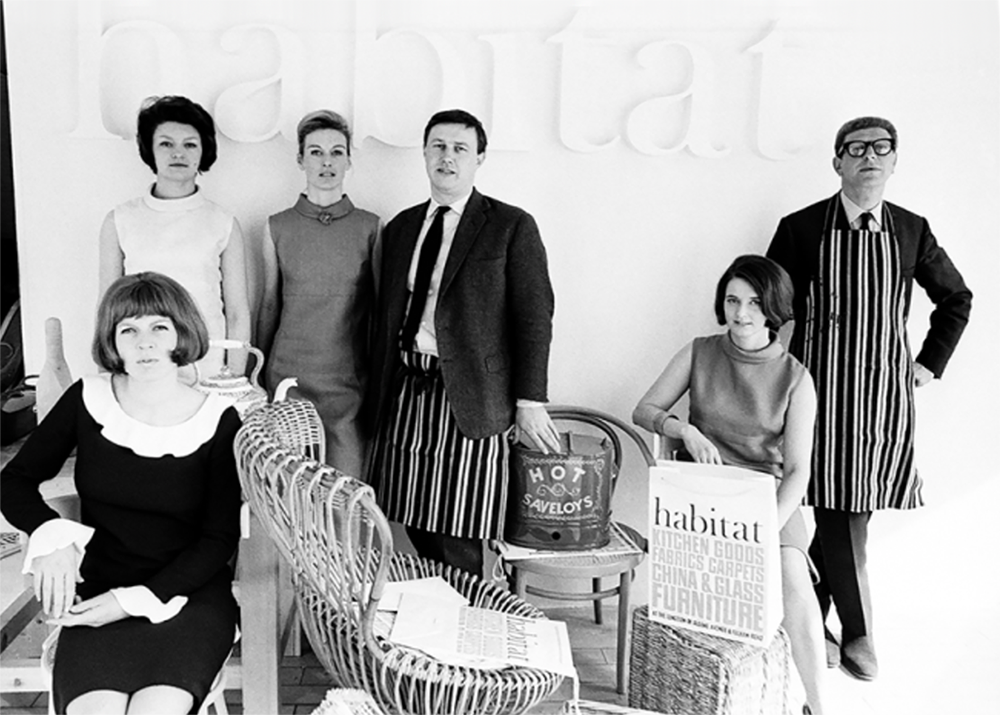Terence Conran
a perspective

Lorem ipsum dolor sit amet, consectetur adipiscing elit. Ut elit tellus, luctus nec ullamcorper mattis, pulvinar dapibus leo.
I’ve spent a colourful lifetime working in design and everything related to it, because design is where all the things I have worked on meet. The restaurants, hotels and bars we have designed or operated, the shops, the interiors, the buildings, the products and furniture or the books I have written – design is the one thing that connects them all and they add up to what I call a style of life. I also realise how lucky I have been in that everything I have ever done for work or business I would have done simply for pleasure.
One of the great turning points in my life was a trip to France in 1953 I took with Michael Wickham. We drove south in his old Lagonda through the Dordogne and it was the first time I had been abroad. Coming from a very grey, post war London I was amazed by the quality of everyday French life – the delicious food in roadside cafes that was washed down with carafes of rough red wine, generously thrown in for free, and the simple, unpretentious but abundant displays on market stalls and shops. I thought, “Why couldn’t we enjoy a life like that back in England?” I suppose I have been trying to capture something of those qualities ever since, although I’ve yet to open a restaurant or bar where we can throw in the red wine for free!
In the early sixties I had had a modicum of success selling contract furniture to commercial users but what I hadn’t realised at that time was that the product itself was not enough. I produced a range of modern flat pack furniture called Summa and we needed staff and retailers to demonstrate our enthusiasm for the designs but they didn’t. Our products looked out of place in their quite dreary shops and showrooms. We were young and hungry for success but the retailers could not see the world was changing and were too lazy and complacent to seize the opportunity – our products didn’t stand a chance of selling in that environment. I felt there was an opportunity for a revolution in the way things were sold, to create something that was more than just a shop selling furniture. And so began my Habitat experiment–partly out of frustration, but also out of a conviction that a better style of life should be more widely available.
People like Mary Quant, myself and other young designers were just incredibly frustrated that our ideas–ideas that we passionately believed would work–were not being taken up by the “powers that be.” So we opened our own shops and did our own thing. It is amazing how Mary’s one little shop made such an inspiring difference. The secret of Habitat’s early success was that it sold quite a lot of affordable but iconic products alongside the furniture – everything from paper lanterns to chopping boards. People quickly realised that by buying a few of them you could completely refresh your home.
Nowadays, we live in a world of opportunities and in a technological age that allows instant communication with practically any country in the world. The market is certainly more competitive too, but any entrepreneur or businessman who backs themselves to be successful would welcome that. Despite the many differences, the qualities for success in business have always remained the same – intelligence, imagination, creativity, common sense, perseverance, market awareness, determination, sensitivity and above all, a thick skin of self confidence are as important now as they were when I was first starting out, although I do have the benefit of a large dollop of hindsight.
I always will have unfulfilled ambitions and plans for the future until the day I die. Unfinished business is what keeps me feeling young, alive, creative and determined.
Image attribution: Photo by
